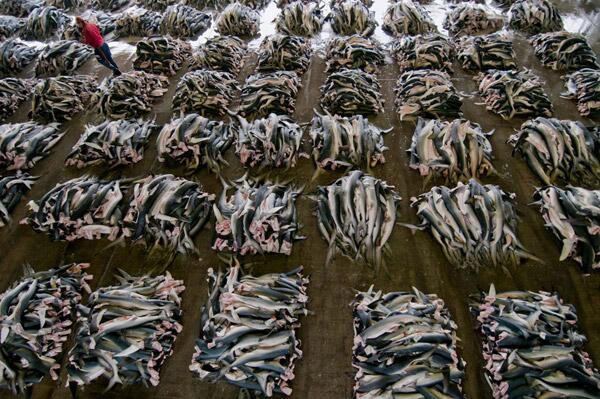The Economist brings two lucid articles on an obvious and yet hidden truth: the fact that the ocean is on its metaphorical knees. If the ocean was a bank account it would be careering towards the red at a blistering pace.
Many of us who have been studying fisheries policies and governance structures for a while have known for a long time that those responsible for administering the ocean have behaved like irresponsible managers, squandering it away.
In a way, we are all responsible. I heard someone say long ago that human beings are badly wired to see the whole picture and that we rush into taking the path to short-term gain without properly considering what the consequences of our actions will mean for other people’s children. This ignorant attitude has certainly characterised human domination over the oceans. Not only have we enshrined in law that ocean space beyond the exclusive reach of coastal States is a ‘free for all’ but we have refrained from exercising the required restraint to avoid the collapse of entire fisheries, rushing in for the kill in case anyone else would beat us to it.
Rampant overfishing has caused more harm to the ocean than all other human activities put together, according to the Economist articles. As a consequence of our actions, the ocean is losing its ability to sustain life. And the legal and governance frameworks that should stop this decline are woefully inadequate to be any use. And yet, better long term fisheries management would make the industry better off by an annual margin of $50 Bn, according to the World Bank.
Can the decline be helped? The are actions we could take, if we really cared. Responsible government agencies and NGOs have called for a global register of fishing vessels, a sort of registration number that does not change when the vessel is sold or renamed. Could you imagine cars without registration plates? Ships should have them too.
The other action is tracking technology. It is all very well to have marine protected areas, but there is no way of ensuring their integrity unless it is known where fishing vessels are. The technology already exists and there are few reasons not to use it. Heard of AIS? Cheap, available to everyone and widely used. It is time to stop the excuses and start using technology to track the whereabouts of fishing vessels.
Governments should demonstrate that they are capable of tracking the whereabouts of their fishing fleets. If they are not, their ability to licence ships for fishing should be removed by an international court. Vessel masters that want to fish in international or foreign waters will then have to register with a country that is responsible enough to track their vessels proactively and stop them from getting into places where they have no right to fish.
Many have decried insurmountable obstacles to achieve rational management of the fishing industry but, with today’s technological tools, the real reason lies in a lack of global vision and in myopic greed.
Putting it bluntly, overfishing is mismanagement and everyone knows what happens to badly managed stuff – after a while, it goes bust. When it comes to the ocean, that is something we simply cannot afford.



You must be logged in to post a comment.